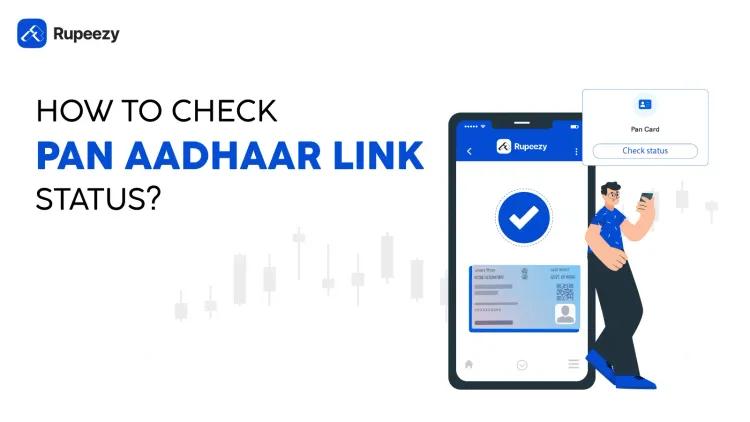What Are Non Convertible Debentures (NCDs) and How They Work


00:00 / 00:00
When it comes to investing, people often opt for mutual funds, as these are managed by experts and help balance risk and return. But what if there is another option that offers you fixed returns with low risk?
This is where you need to know about the non-convertible debentures. These are one of the types of debentures that are issued by companies to raise funds from investors. Against these, the investors get a fixed interest income.
But the question here is what non-convertible debentures (NCDs) exactly are. Also, how do they work? So, read this guide to explore the answers you need.
What is a Non Convertible Debenture (NCD)?
A non convertible debenture (NCD) is a type of fixed-income investment. These are the ones that are used by the companies to raise funds from the public.
As an investor, you invest the amount as a loan in NCD. This is for a fixed time with a low level of risk involved. In return, the company pays you regular interest. This interest is known as the coupon rate. Also, once the maturity is reached, you get the principal amount.
One of the most important features of the non convertible debentures is that they cannot be converted to equity shares of the company. They remain debt instruments throughout their tenure. Hence, they ensure to offer steady and predictable returns.
Key Features of Non Convertible Debentures
There is no doubt that NCDs are perfect for those who are looking for investment options that offer low risk. Unlike fixed deposits, they do offer a higher rate of interest. But certain features make them unique.
Here are some of the main features that define non convertible debentures:
Fixed Returns: NCDs offer a predetermined interest rate. This ensures a steady income throughout the investment period.
Tenure: The maturity period usually ranges from one year to ten years. It is all based on the company that is issuing the NCDs.
Tradable on Exchanges: Most NCDs are listed on stock exchanges. This allows the investors to buy or sell them before maturity.
Credit Rating: NCDs are rated by agencies like CRISIL or ICRA. This ensures that the company you are investing in passes the basic benchmark for creditworthiness.
Secured or Unsecured: Some of the NCDs are backed by company assets, which makes them even safer. While others are not so are bit risky.
No Conversion to Equity: NCDs are the instruments that cannot be converted to shares. This means there is no dilution of ownership for the company, and the return guarantee is assured for the investor.
How Non Convertible Debentures Work
When a company issues non convertible debentures (NCDs), it borrows money from investors. This money is invested in the operations to help the business grow. Also, this is borrowed for a fixed time, which ensures that the debt is for a limited time. Being an investor fund, this is also traded on stock exchanges, which makes this a great choice for companies with no dilution of ownership.
So, here is how the NCDs work:
1. Issue Announcement
The company announces the NCD issue. This will include all the basic details linked to the non convertible debentures. The key points shared are interest rate, tenure, type (secured or unsecured), and payment schedule.
2. Investor Subscription
After the announcement is made, the NCDs are opened for subscription. This is where the investors can apply to invest in the NCDs. This is mainly done through their demat or trading accounts. Ensure that you do the same when the subscription is open.
3. Allotment
After the issue closes, the investor needs to wait for the allotment to start. The company allots NCDs to eligible investors. Once allotted, the company receives the funds raised through the process.
4. Interest Payment
The company pays regular interest to investors. No, this can be monthly, quarterly, or annually. It is based on the terms and conditions mentioned at the time of the issue.
5. Listing and Trading
NCDs are listed on stock exchanges like NSE or BSE. This allows the investors to trade in them just like they buy or sell stocks in the market. The entire trading is done in the secondary market.
6. Maturity and Redemption
When the tenure ends, the company repays the principal amount to investors. This completes the entire NCD lifecycle.
Example: A simple non convertible debentures example is when a company issues NCDs at 8% for 5 years. The aim is to raise funds for expansion. Investors purchase these debentures and receive fixed interest payments. Once the term ends, the company returns the original investment amount to the investors along with the final interest.
Pros and Cons of Non Convertible Debentures
Like any investment, non convertible debentures (NCDs) have both benefits and risks. As an investor, you must know both of these to ensure that you make the right investing call. So, here are the ones that you must know.
Pros of NCDs
Fixed Income: The non convertible debentures are an example of fixed income options. This means investors get fixed returns. Hence, these are suited for conservative investors.
Higher Returns: Investors get fixed and higher returns when they invest in NCDs in place of a fixed deposit with a bank.
Tradable Investment: Most of the non convertible debentures are listed on stock exchanges, helping with trade and transparency.
Credit Insight: Every NCD is evaluated by a credit rating agency. This ensures that you invest in worthy choices and gain good returns.
Secured Options: Companies back their NCD issuance with assets. This ensures safety and makes them an even more desirable option.
Cons of NCDs
Credit Risk: Just like various other assets, NCDs also come with risk. This can be a result of financial issues. This can lead to a loss of interest for investors.
Liquidity Risk: Not all NCDs have active buyers in the market and so hard to sell.
No Equity Upside: There is no ownership or price change in future.
Taxable Returns: The returns are taxed based on the income slab.
Interest Rate Risk: Any change in market risk will impact the returns of the investor.
Conclusion
Non convertible debentures (NCDs) can be a good investment choice for those looking for fixed income and lower risk than equities. These are the investment options that offer fixed and predictable returns while reducing the overall risk. But to ensure you gain the complete benefit, it is important to do proper analysis before investing.
And if you are looking to invest properly with a trusted partner on your side, then register on Rupeezy. It is a trusted platform that helps you trade and invest better.
FAQs
How do non convertible debentures generate income?
NCDs earn interest income, which is paid monthly, quarterly, or even annually, based on terms.
What happens if the issuing company defaults?
If the company fails to repay, investors in secured NCDs have a claim on the company's assets. But if the NCD is unsecured in nature, then there is a risk of loss.
Can NCDs be held in a demat account?
Yes, most NCDs are available in demat form. You can trade them just like shares.
Do NCDs suit short-term investors?
Generally, NCDs are better for medium to long-term investors. Early exit can be there based on the market liquidity.
How can I check the reliability of an NCD?
Always review the credit rating from agencies like CRISIL or ICRA, and assess the company’s past financial performance before investing.
The content on this blog is for educational purposes only and should not be considered investment advice. While we strive for accuracy, some information may contain errors or delays in updates.
Mentions of stocks or investment products are solely for informational purposes and do not constitute recommendations. Investors should conduct their own research before making any decisions.
Investing in financial markets are subject to market risks, and past performance does not guarantee future results. It is advisable to consult a qualified financial professional, review official documents, and verify information independently before making investment decisions.

All Category










